As an attorney investigating commercial vehicle accidents, your natural tendency may be to focus on the actions of the driver. Were they speeding? Distracted? Fatigued? Under the influence?
These are important questions, and as with many commercial vehicle accidents, the driver’s negligence, recklessness, or intentional misconduct is central to the claim. But focusing solely on the driver can limit recovery and overlook deeper liability that may be shared (or even primarily held) by other parties. In many commercial truck accidents, multiple parties may share liability, making truck accident liability a complex legal issue that requires a thorough investigation to identify all responsible entities. Understanding the potentially liable parties in commercial vehicle accidents is therefore crucial to maximize the damages recovery for your client (and for maximizing the likelihood of said recovery).
Commercial vehicle accidents can be highly complex. They often involve corporate employers, maintenance contractors, manufacturers, logistics coordinators, and more. Each of these parties can contribute to the accident directly or indirectly, and may share liability for the accident. If you’re handling these sorts of personal injury cases, understanding how to identify and pursue these other liable entities can dramatically increase the likelihood of a favorable outcome.
Keep reading to learn more about the various third parties who may bear responsibility in claims centered around commercial vehicle accidents, and how you can uncover their role through proper investigation and legal analysis.
Why Looking Beyond the Driver Matters
Commercial drivers typically do not have the financial resources or policy limits to cover the full damages of a serious crash. Even when liability is clear, the driver’s personal insurance or company-provided coverage may not be sufficient. Understanding insurance coverage and the specific details of insurance policies is crucial, as insurance companies play a significant role in handling claims, negotiating settlements, and determining available compensation after a truck accident. Additionally, juries may be more sympathetic toward an overworked or poorly trained employee than they are toward the company that hired or supervised them.
Identifying other parties who contributed to the accident not only expands the pool of available insurance but also increases settlement leverage. When corporate entities with higher exposure and deeper pockets are included in a claim, the case is more likely to be taken seriously and resolved fairly. Truck accidents are often far more complex than regular car accidents, making specialized legal representation essential.
The Trucking Company, Employer, or Contracting Entity
If the driver got into an accident in the “course and scope” of their job role, then their employer can potentially be held vicariously liable under the legal doctrine of respondeat superior. The employer may be a trucking company, motor carrier, or other entity, and trucking companies are often held responsible for their drivers’ actions. This applies when the driver was acting within the scope of employment at the time of the accident. In most cases involving company trucks, delivery vans, or cargo haulers, this element is easily met.
But strategic attorneys should not rely solely on principles of vicarious liability to secure compensation for their clients. Employers can also be held directly liable for their own actions. Their misconduct may include the following:
- Failing to conduct background checks
- Hiring unqualified drivers
- Ignoring prior safety violations
- Providing poor training
- Pressuring drivers to meet unsafe delivery schedules
If the employer created a system that rewarded speed over safety or failed to enforce rest period rules, these facts may support a claim for negligent hiring or supervision. These direct liability theories can open the door to multiple additional claims (and in some rare cases, punitive damages, especially when the employer’s conduct shows disregard for public safety). Bringing multiple claims can help shield you and your client from the risk of a total loss if one of your legal arguments is insufficiently persuasive.
It is important to note that independent contractors in the trucking industry may have different liability and insurance requirements compared to employed drivers, and trucking companies may try to limit their liability by classifying drivers as independent contractors.
Vehicle Owners and Leasing Companies
In some cases, the driver or the company they work for does not own the commercial vehicle. The truck or van may be leased from another company. If a mechanical failure played a role in the accident, it is important to investigate who was responsible for maintaining the vehicle.
Leasing companies often retain maintenance duties, even if the vehicle is used by another business. If a worn tire, faulty brake system, or engine problem caused the crash, the party responsible for upkeep may be at fault. A maintenance provider or maintenance company may be held liable if poor maintenance or faulty brakes contributed to the accident.
Attorneys should examine lease agreements to understand:
- Who owned the vehicle at the time of the crash
- Who was responsible for maintenance and inspection
- Whether proper service intervals were followed
- What communication occurred about prior mechanical issues
If the owner failed to meet their maintenance obligations, they may bear partial or full responsibility.
Repair and Maintenance Contractors
Even when a company owns and operates its fleet, it may outsource repair and inspection tasks. If a truck was recently serviced and the mechanic failed to detect or fix a safety issue, that repair contractor may be liable.
For example, suppose a repair shop replaced a brake pad but failed to reattach the caliper properly. A few days later, the vehicle is involved in a crash due to brake failure. Even though the driver and the company followed maintenance schedules, the contractor’s negligence becomes central to the claim. In this situation, the repair contractor can be held accountable and held responsible for the accident, but it is necessary to prove negligence to establish their liability.
To assess this possibility, request service records, invoices, and internal company communications. Interview witnesses who may have identified issues before the accident. Determine whether the same shop had a pattern of errors or was underqualified to perform the repair work.
Freight Loaders and Shippers
In cargo transport cases, the way freight is loaded can directly contribute to an accident. Shifting loads, improperly secured cargo, or overweight trailers can all affect a vehicle’s stability and braking ability. If overloaded trucks or improper loading played a role in the crash, a cargo loading company or cargo loaders may be liable for failing to properly secure or balance the load.
If a third-party warehouse or shipper handled the cargo and loaded it onto the truck, they may be liable for improper loading. This is especially important in cases involving tip-overs, jackknifes, or loss-of-control incidents.
Review shipping logs and weigh station data. Examine whether the load was balanced and within legal weight limits. If there is evidence of a hasty or unbalanced load, the party responsible for preparing the freight may need to be added as a defendant.
Logistics and Delivery Contractors
Many commercial vehicles operate as part of a larger logistics chain. Companies like Amazon, FedEx, and other delivery platforms often contract with smaller operators to handle the actual transport. These contractors may be subject to policies, deadlines, or tracking systems imposed by the larger brand.
If the contractor pushed unsafe driving practices due to unreasonable quotas or if the logistics company created a system that indirectly encouraged violations of safety standards, there may be a claim against the broader entity. The trucking industry is subject to strict safety regulations, and violations such as distracted driving can significantly increase liability for logistics companies.
Even if the driver worked for a small independent company, the larger company that controlled delivery protocols or route tracking may be brought in for negligence in system design, oversight, or supervision.
Vehicle and Parts Manufacturers
If a commercial vehicle accident was caused by a defect in the truck or one of its components, the manufacturer of that part may be liable under product liability law. The truck manufacturer or the truck’s manufacturer can be held liable for defects in tractor trailers and other commercial trucks, and commercial truck drivers rely on the safety of these vehicles. Possible examples of vehicular parts issues include:
- Tire blowouts due to defective treads
- Brake system malfunctions
- Steering or suspension defects
- Engine fires or power failures
Product liability claims require expert analysis and evidence that the defect existed when the part left the manufacturer. Attorneys handling these cases should preserve the vehicle, consult with mechanical engineers, and request recall histories or warranty repair records.
Unlike negligence-based claims, product liability claims can succeed even if the manufacturer was not directly negligent, as long as the product was unreasonably dangerous and caused harm.
Government Entities
Sometimes, road design or maintenance contributes to an accident. If a commercial vehicle crashes due to a poorly designed intersection, missing signage, or a pothole that had gone unrepaired, a government agency may be liable. In fact, even government entities can be held liable for accidents caused by negligent road maintenance or design.
These claims are difficult but not impossible. Special procedures usually apply, such as shorter notice deadlines and limits on damages. Still, for the right set of facts (and the right amount of damages potential), it may be worth pursuing a government defendant.
Check maintenance logs, local complaints, and incident histories in the area. Photos of the scene taken immediately after the crash are especially helpful for showing dangerous road conditions or missing safety features. Then, work with a roadway safety design expert who can help you piece together the issues more cohesively.
Uncovering Truck Accident Liability Through Investigation
The key to identifying non-driver defendants is an early and thorough investigation. Attorneys should go beyond police reports and client statements. Visiting the accident scene is crucial for gathering evidence, establishing liability, and determining liability among the parties involved. Consider these steps:
- Request vehicle inspection and maintenance logs
- Obtain contracts between employers, contractors, and service providers
- Hire experts to analyze mechanical failures or crash dynamics
- Send preservation letters to all potential parties
- Subpoena GPS and telematics data
- Review driver training manuals and company safety policies
- Document the accident scene and collect evidence to help determine liability and identify all responsible parties, possible liable parties, and multiple liable parties
Truck accident cases and trucking accident claims often involve multiple parties, including negligent parties and liable parties. A thorough investigation is necessary to recover compensation, pursue compensation, and receive fair compensation for truck accident victims who may have suffered catastrophic injuries, severe injuries, lost wages, medical expenses, and medical bills.
Working with a truck accident attorney or law firm experienced in commercial truck accidents, trucking crashes, and truck accidents is essential to maximize compensation and ensure all those responsible for the accident are held accountable. Identifying negligent actions and responsible parties is critical to building a strong truck accident case and securing fair compensation for victims.
Each of these sources can point to a hidden link in the chain of responsibility. The more complete your investigation, the stronger your case will be against every responsible party.
Contact Walker Advertising for Help Growing Your Firm’s Client Base
Whether you’re a solo lawyer, or a small firm lawyer — or are part of a larger firm with plans for further expansion — it’s important to grow your client base in order to hit your revenue and client growth goals. Here at Walker Advertising, we can help. We operate a number of popular attorney networks (including our Los Defensores and 1-800-THE-LAW2 brands) through which firms are able to access leads for various legal claims.
The leads we acquire through our various online marketing efforts — from social media marketing to targeted web ads — have been pre-qualified by our team so that you aren’t hassled by a flood of leads that are simply not relevant or actionable for your purposes. By accessing these quality leads, you’ll be well-equipped to select the best ones to grow your firm’s business.
Best of all, you won’t have to spend your valuable time and effort on building out your online marketing efforts. Don’t worry about SEO optimization, trend analysis, or any other complex marketing issues. Instead, use us to access pre-qualified inbound leads, and focus your limited internal resources on providing quality representation to your existing (and new) client base.
Contact Walker Advertising today to connect to a member of our team who can explain how our legal networks can help your firm’s business thrive in this ever-changing digital marketing landscape.
We look forward to assisting you.






